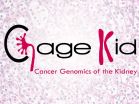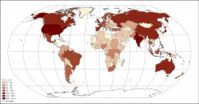(Press-News.org) New research by the international Cancer Genomics of the Kidney consortium (CAGEKID) reveals an important connection between kidney cancer and exposure to aristolochic acid, an ingredient in some herbal remedies. The findings, published in Nature Communications, have important implications for public health.
Kidney cancer kills more than 140,000 people every year, and in Central Europe incidence rates have been increasing dramatically. CAGEKID, part of the International Cancer Genome Consortium (ICGC), has been studying the genetic causes of this disease in Europe. The project partners sequenced the DNA and RNA of normal and tumour cells in around 100 renal cell carcinoma patients from the Czech Republic, Romania, Russia and the United Kingdom. The results confirmed that certain genetic changes are associated with this type of cancer, and pointed to specific biological pathways and sets of genes that are affected by the mutations.
In the majority of Romanian patients, the researchers observed a very high frequency of genetic changes that are associated with exposure to aristolochic acid, though it is not clear exactly how these patients became exposed to it. The findings suggest that the main causes of kidney cancer may vary between populations, and confirm that aristolochic acid is a carcinogen.
The study was led by McGill University, where the DNA data analyses were carried out. "While the study included only 14 patients from Romania, the specific mutation pattern was found in 12 of them," explains Mark Lathrop of McGill University and Genome Quebec Innovation Centre. "We will analyse samples from more patients from Romania and elsewhere in the Balkan region in follow-up research that is now underway to assess the extent of exposure."
EMBL-EBI scientists contributed their expertise in handling and analysing very large volumes of data. "Our group analysed the very large quantity of RNA data produced in the studies, and we saw some interesting abnormalities," says Alvis Brazma, head of Functional Genomics at EMBL-EBI. "There was clearly a loss of gene function, and that was due to changes in splicing patterns. We also saw novel fusion genes – pairs of genes that are fused together and create products that interfere with the proper functioning of the cell."
"This tumour genomic project is unique in that it is based on samples from various countries, with potential diversity in risk factors," says Ghislaine Scelo of the International Agency for Research on Cancer (IARC/WHO). "Our study illustrates that systematic exploration of tumour DNA via massive sequencing can identify previously unsuspected causes of cancer."
INFORMATION:
All data from the study is available in EMBL-EBI's controlled-access European Genome-phenome Archive (EGA) and (ArrayExpress). The datasets will be incorporated into the ICGC's pan-cancer project, which uses the EGA for data management and EMBL-EBI's Embassy Cloud for storage and data analysis.
Kidney cancer in Central Europe
New research by CAGEKID consortium reveals a connection between kidney cancer and the use of aristolochic acid
2014-10-29
ELSE PRESS RELEASES FROM THIS DATE:
Study sheds light on genetic architecture of kidney cancer
2014-10-29
A new study on a large cohort of kidney cancer patients in Europe sheds light on the genetic architecture of the disease -- and reveals an apparent link between exposure to aristolochic acid and incidence of kidney cancer, particularly in Romania.
The research, by an international team led by scientists from the McGill University and Genome Quebec Innovation Centre in Montreal, underscores the importance of investigating possible sources of exposure to aristolochic acid. The compound, found in plants of the Aristolochia genus, also has been suspected of causing a kidney ...
ECG on the run: Continuous ECG surveillance of marathon athletes is feasible
2014-10-29
Sophia Antipolis, 20 October 2014. The condition of an athlete's heart has for the first time been accurately monitored throughout the duration of a marathon race. The real-time monitoring was achieved by continuous electrocardiogram (ECG) surveillance and data transfer over the public mobile phone network to a telemedicine centre along the marathon route. This new development in cardiac testing in endurance athletes, said investigators, "would allow instantaneous diagnosis of potentially fatal rhythm disorders".
Following trails in two marathon races, the investigators ...
Diets high in fruit, vegetables, whole grains and nuts among factors to lower first-time stroke risk
2014-10-29
Eating Mediterranean or DASH-style diets, regularly engaging in physical activity and keeping your blood pressure under control can lower your risk of a first-time stroke, according to updated AHA/ASA guideline published in the American Heart Association's journal Stroke.
"We have a huge opportunity to improve how we prevent new strokes, because risk factors that can be changed or controlled — especially high blood pressure — account for 90 percent of strokes," said James Meschia, M.D., lead author of the study and professor and chairman of neurology at the ...
MRI identifies brain abnormalities in chronic fatigue syndrome patients
2014-10-29
OAK BROOK, Ill. – Researchers using a combination of different imaging techniques have found structural abnormalities in the brains of people with chronic fatigue syndrome (CFS), according to a new study published online in the journal Radiology. The results suggest a potential role for imaging in diagnosing and treating the condition.
CFS is characterized by profound fatigue and "brain fog" that do not improve with bed rest, lasting for at least six months. The condition affects more than 1 million adults and children in the United States, according to the Centers ...
Stanford study finds brain abnormalities in chronic fatigue patients
2014-10-29
An imaging study by Stanford University School of Medicine investigators has found distinct differences between the brains of patients with chronic fatigue syndrome and those of healthy people.
The findings could lead to more definitive diagnoses of the syndrome and may also point to an underlying mechanism in the disease process.
It's not uncommon for CFS patients to face several mischaracterizations of their condition, or even suspicions of hypochondria, before receiving a diagnosis of CFS. The abnormalities identified in the study, to be published Oct. 29 in Radiology, ...
Prostate cancer medications linked with increased risk of heart-related deaths in men with cardiovascular problems
2014-10-29
A new study has found that certain prostate cancer medications are linked with an increased risk of dying from heart-related causes in men with congestive heart failure or prior heart attacks. Published in BJU International, the findings will help doctors and patients weigh the benefits and risks of the drugs.
Androgen deprivation therapy (ADT), which reduces levels of male hormones in the body to prevent them from stimulating cancer cells, is a mainstay of treatment for prostate cancer. Despite its anticancer effects, ADT has been associated with heart problems, including ...
New frailty test predicts risk of poor outcomes in elderly patients
2014-10-29
SAN FRANCISCO: A simplified frailty index created by surgeons at Wayne State University School of Medicine in Detroit, Mich., is a reliable tool for assessing risk of mortality and serious complications in older patients considering total hip and knee replacement procedures, according to new study findings presented today at the 2014 Clinical Congress of the American College of Surgeons.
As more seniors stay healthier longer, elective operations such as hip and knee replace-ments are becoming more common. Traditionally, a person's eligibility for surgery has been based ...
Poor access to general surgeons increases the risk of ruptured appendix for young children
2014-10-29
SAN FRANCISCO: Delayed treatment for appendicitis can often lead to a ruptured appendix. That's exactly what is more likely to happen to many children in North Carolina if they have to delay getting treatment because of poor access to general surgeons, according to new study findings presented this week at the American College of Surgeons 2014 Clinical Congress.
Appendicitis is a common condition, but previous research has shown that complications from the condition may be directly tied to living in an area without enough general surgeons. Findings from a May 2014 ...
Global infection outbreaks, unique diseases rising since 1980
2014-10-29
PROVIDENCE, R.I. [Brown University] — Enterovirus. Tuberculosis. Cholera. Measles. Various strains of the flu and hepatitis. The number of infectious disease outbreaks and the number of unique illnesses causing them appear to be increasing around the globe, according to a new Brown University analysis of more than 12,000 outbreaks affecting 44 million people worldwide over the last 33 years.
Menacing as that may sound, these preliminary findings also reveal an encouraging trend. On a per capita basis, the impact of the outbreaks is declining. In other words, even ...
The bee's knees for identifying genetic triggers of novel adult traits
2014-10-29
Scientists have long sought to identify the specific DNA changes that can trigger new traits, allowing species to adapt. But when animals develop a new trait, are the mutations within the part of the DNA that makes proteins, or, in the master switches that control the gene, modulating its activity to turn on or off?
For development of the embryo, it is usually the master control regions of a gene that dominate, but what about in an adult?
Jasper et al. found that adults play by a different set of rules, relying on the contributions of novel genes---called taxonomically ...
LAST 30 PRESS RELEASES:
New research finds heart health benefits in combining mango and avocado daily
New research finds peanut butter consumption builds muscle power in older adults
Study identifies aging-associated mitochondrial circular RNAs
The brain’s primitive ‘fear center’ is actually a sophisticated mediator
Brain Healthy Campus Collaborative announces winner of first-ever Brain Health Prize
Tokyo Bay’s night lights reveal hidden boundaries between species
As worms and jellyfish wriggle, new AI tools track their neurons
ATG14 identified as a central guardian against liver injury and fibrosis
Research identifies blind spots in AI medical triage
$9M for exploring the fundamental limits of entangled quantum sensor networks
Study shows marine plastic pollution alters octopus predator-prey encounters
Night lights can structure ecosystems
A parasitic origin for the ribosome?
A gold-standard survey of the American mood
Tool for identifying children at risk of speech disorders
How Japanese medical trainees view artificial intelligence in medicine
MambaAlign fusion framework for detecting defects missed by inspection systems
Children born with upper limb difference show the incredible adaptability of the young brain
How bacteria can reclaim lost energy, nutrients, and clean water from wastewater
Fast-paced lives demand faster vision: ecology shapes how “quickly” animals see time
Global warming and heat stress risk close in on the Tour de France
New technology reveals hidden DNA scaffolding built before life ‘switches on’
New study reveals early healthy eating shapes lifelong brain health
Trashing cancer’s ‘undruggable’ proteins
Industrial research labs were invented in Europe but made the U.S. a tech superpower
Enzymes work as Maxwell's demon by using memory stored as motion
Methane’s missing emissions: The underestimated impact of small sources
Beating cancer by eating cancer
How sleep disruption impairs social memory: Oxytocin circuits reveal mechanisms and therapeutic opportunities
Natural compound from pomegranate leaves disrupts disease-causing amyloid
[Press-News.org] Kidney cancer in Central EuropeNew research by CAGEKID consortium reveals a connection between kidney cancer and the use of aristolochic acid


